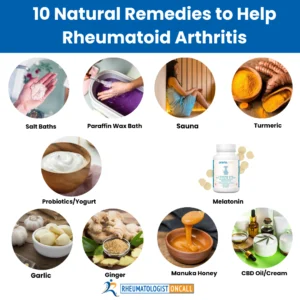SHARE
A few days ago, I published this article in Kevinmd.com, one of the largest medical blogs in the world. I shared my story about discovering the importance of treating the patient and not the disease. Yes, unfortunately as medical students and then residents we are taught to recognize disease patterns , then how to treat that disease.
Let me share with you my journey.
“Medical school, residency and fellowship taught me about pathophysiology, diagnosis, and the most advanced treatments of autoimmune diseases like rheumatoid arthritis. As an attending physician, seeing my own patients, I noticed targeted therapy is not able to control the disease in all patients with rheumatoid arthritis. The results varied. I could not stop asking myself, why is it so different?
In my previous article, I wrote about one of my patient’s stories as well as my discovery journey of integrative medicine. After taking a Nutrition Science course at Stanford University, a Mindfulness Training Program at the University of Massachusetts, doing a lot of research, I started to recognize the vital role of nutrition in managing my rheumatoid arthritis patients. However, to have the most optimal outcomes, we must discuss with patients about essential lifestyle changes. Despite acknowledging the role of lifestyle changes, many physicians will not have time to proper educate patients or are not properly rewarded by the current traditional billing/ coding system.
Nutrition: The key in decrease inflammation
Nutrition influences our gut microbiome, which is now recognized to have a significant impact on many aspects of our lives, including mood, obesity, and even our immune system. A multitude of studies have demonstrated that switching to the vegetarian diet, Mediterranean diet, and/or intermittent fasting can have a profound impact on rheumatoid arthritis.

Omega-3 supplementation, like fish oil increases the likelihood for patients to get into remission, decreases disease activity, reduces the duration of morning stiffness, and provides symptomatic relief. This is why we, as medical professionals, should encourage our patients to develop and maintain healthy eating habits.
Exercise: Modulating Effects on Mood and Chronic Pain
Exercise has long been associated with health, and for good reasons from improving the mood, reducing the risk for developing diseases, and even helping with chronic pain management. When it comes to exercise, I consulted with Dr. Melissa Koehl, a Physical Therapist, who explained that “[more] and more evidence is found on the effect of exercise on reducing pain, inflammation, fatigue, and improving joint mobility, strength, flexibility, and mood.”

This is a result of exercise-induced hypoalgesia, which is a series of biochemical events that result in reduced pain. This pain-dampening response occurs even after one round of exercise and increases when training is done consistently. “As such, exercise should be introduced early as an essential part of treating patients with Rheumatoid Arthritis.
A frequent question is: what is the best type of exercise? Dr. Koehl says “Unfortunately, there is no one-size-fits-all answer. The best exercise program is individualized and uses a combination of strength training, aerobic exercise, and even exercise in water. The buoyancy of water significantly decreases the compressive forces on the joints, making exercise far more comfortable. Water also provides resistance to help build muscle strength, and many find they can do light jumping exercises in water. These are very beneficial as they promote the movement of the lymphatic system, which helps move inflammatory substances and edema (swelling) out of the joints. “
Sleep: for Rheumatoid Arthritis Patients
Unfortunately, about 60% of arthritis patients report poor sleep quality, averaging only 5.7 hours per night. Sleep and pain appear to have a bidirectional relationship. Chronic sleep deprivation will lead to severe fatigue, anxiety, depression, insomnia, increased pain, inflammation, and decreased immune system function. In addition, chronic pain, medications, and comorbidities (OSA, restless leg syndrome) can contribute to sleep deprivation.

For example, patients with rheumatoid arthritis that sleep shorter periods or have a fragmented sleep will have increased pain sensitivity the following day. In my experience, patients describe their pain levels worsening after a night of poor sleep while sleeping better decreases their pain level. Fatigue will impact the patient’s ability to exercise or make appropriate choices regarding nutrition. I always talk to my patients with rheumatoid arthritis about optimizing sleep up to 8 -9 hours per night to improve their disease activity.
Mindfulness: The Power of the Mind to Control Chronic Pain
As rheumatologists, we often try to target molecules of inflammation. In doing so, we often forget that a patient is whole, and their mind, body, and behavior are well-connected. Many patients describe that before their symptoms of autoimmune disease surface, they experience significant stress in their life, such as losing their job, someone dear, or going through a dramatic health change like surgery or being diagnosed with a malignancy. Is there a connection between the immune system and our mind? Yes, there is.

In 1980’s, Prof. Dr. Jon Kabat Zinn introduced mindfulness to Medicine by starting the Mindfulness-Based Stress Reduction (MBSR) programs in the US. He proved that 8 weeks of mindfulness had great benefits for controlling the pain level in chronic autoimmune conditions like psoriasis. A 2020 meta-analysis of randomized control trials in patients with rheumatoid arthritis of 337 patients showed that mindfulness interventions can significantly improve pain intensity, depression, and symptoms compared with conventional therapy. Mindfulness will also decrease the daily pain in patients with rheumatoid arthritis.
I teach patients how to approach pain and incorporate simple breathing techniques, guided imagery, or other relaxation techniques. Less pain translates in better sleep and quality of life.
Rheumatoid arthritis treatment is complex. Patients deserve a personalized and integrative medicine approach. In my clinic, I focus on the patient, not their disease. We, as rheumatologists, have the best tools to help patients from DMARDs to targeted therapies. However, the patient day by day choices will influence their ability to respond and maintain good control of their disease. Educating and empowering my patients to make the right nutrition choices, exercise regularly, sleep longer and better, add certain supplements when appropriate, and use relaxation techniques to manage pain, have tremendously changed my patient’s life for good.”














